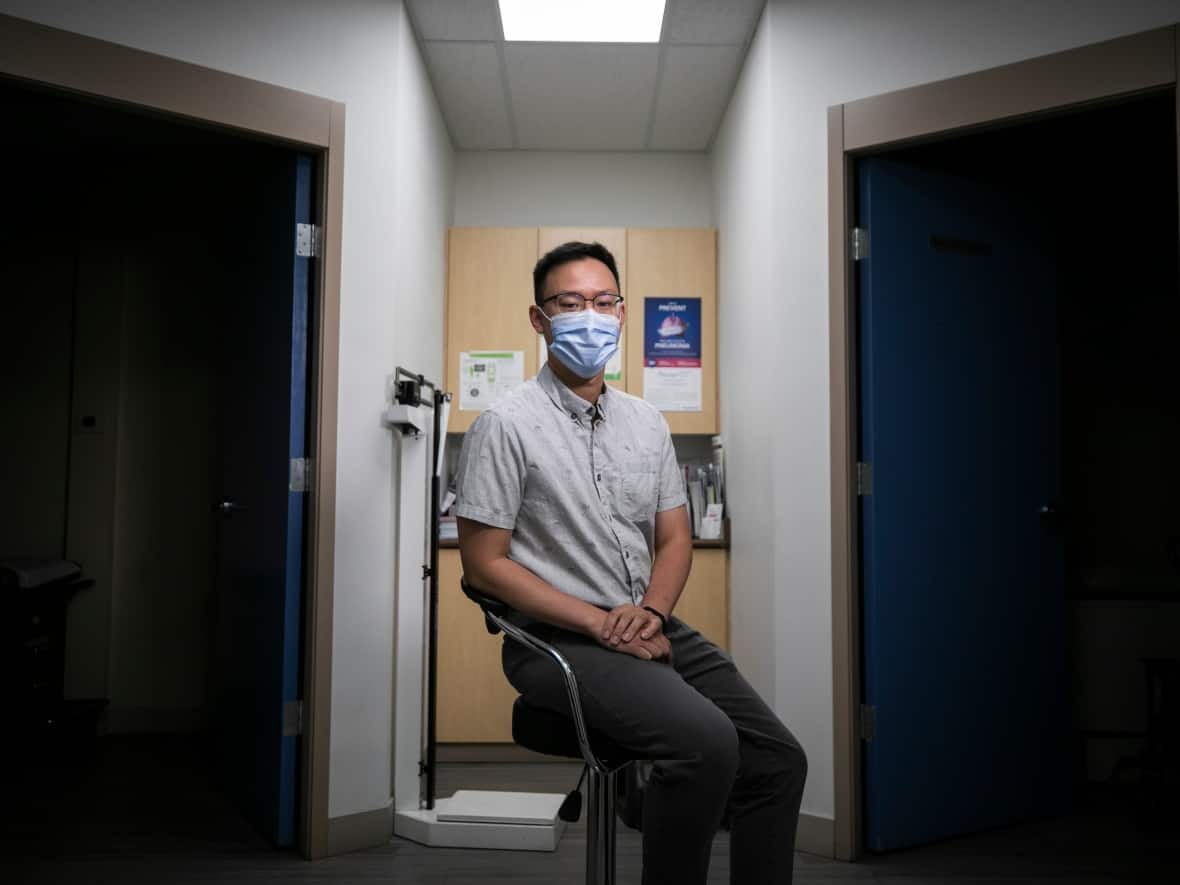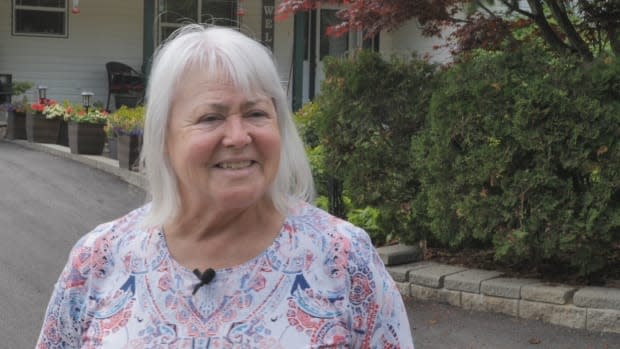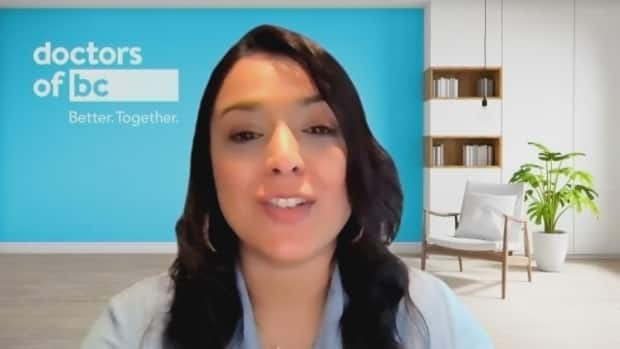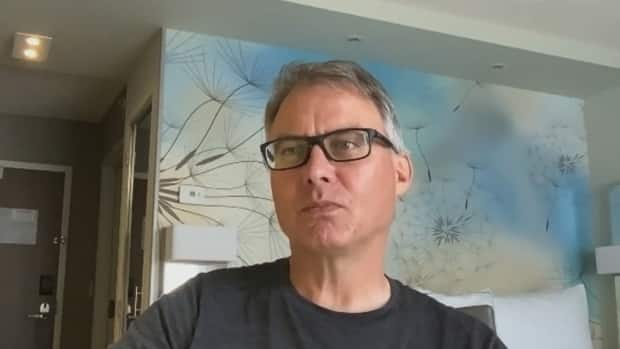Patients turned to telehealth during the pandemic. B.C. doctors say it isn't a long-term solution

In May 2021, Debra Barlee and her husband, Ron, decided to sell their home in Maple Ridge, B.C., about an hour's drive east of Vancouver and relocate to the rural town of Creston near the Canada-U.S. border in the province's southeast.
They left everything behind: their friends, family, jobs.
Everything, that is, but their family doctor, who still resides in Maple Ridge, an eight-hour drive away.
Since moving, the 66-year-old retiree, who lives with rheumatoid arthritis, said she hasn't made the long drive back for an in-person appointment, relying instead on phone calls with her doctor, visits to the Creston Valley Hospital and Health Centre emergency room and specialized clinics.
"It's an inconvenience," she said. "An eight-hour drive is a big deterrent in going to see your doctor."

But Barlee has also tried and failed to find a general practitioner in Creston as the town — like many others in B.C. — struggles with the demands of a health-care system stretched thin.
As an estimated one million British Columbians struggle to find a family doctor, health-care providers say they are providing more long-distance health care to patients, thanks largely to advances in telehealth sparked by the COVID-19 pandemic.
Telehealth services allow patients to receive medical care from a distance, using phone calls, texts, email, online videos, and other digital tools. Patients do not need to have a pre-existing relationship with the practitioner to access the services or book an appointment.
Data from Canada Health Infoway shows that the rate of virtual care use in Canada rose from as low as 10 per cent in 2019 to 60 per cent across provider categories in April 2020. In 2021, the same analysis found the number fell slightly, with 40 per cent of all visits occurring virtually.
The Canadian Institute for Health Information, meanwhile, found the percentage of B.C. physicians who provided virtual care services rose nearly 20 per cent between February and September 2020.
But while advances in technology helped provinces fast-track virtual care during COVID, doctors say telehealth appointments are not a permanent solution to B.C.'s doctor shortage and may have profound implications for patient health over time, such as increased morbidity and mortality rates for those unable to find a dedicated family doctor.
"Family doctors have the ability to build a long-term, lasting relationship, so they get to know you and how your body works," said Doctors of B.C. president Ramneek Dosanjh. "Patients have the ability to talk with their family doctor about anything that concerns them, especially if they have that long-term, trusted relationship."
"Virtual care can be a mutually beneficial way for family doctors to see patients," she added. "But it must be made clear that virtual care is an adjunct to in-person care, not a replacement for it."
There are no rules governing a patient's proximity to their doctor. The College of Physicians and Surgeons of B.C. states that it is appropriate for a college registrant to end their relationship with a patient if, among other examples, a "patient moves to another community making required in-person assessments impracticable."
That same practice standard, however, indicates that physicians must carefully consider ending a patient relationship and "make all reasonable attempts to resolve the situation first."
Weighing worst-case scenarios
Like Barlee, 71-year-old Rick Merrell kept his family doctor in White Rock — a municipality south of Vancouver, near the Canada-U.S. border, where he has spent most of his adult life — after returning to his hometown of Creston to live out his later years.
"If it was severe then, I would definitely have to go out there [to White Rock]," said Merrell, who is also currently looking for a new family doctor.
"I try to kill two birds with one stone with other appointments, but I'm juggling some of my medical needs to accommodate the price of gas."

Lower Mainland Dr. Carllin Man, meanwhile, said the cost of commuting is only part of the equation when talking about a patient's worst-case scenario.
"When they're sick, even though they could come and see me, is it a smart idea?" he said.
Man, who offers both telehealth and in-person care at Welcome Medical Clinic in Burnaby, estimates 15 to 20 of his roughly 800 patients live outside the Lower Mainland, in places including Courtenay, on Vancouver Island, and Hope, about a two-hour drive east of Vancouver.
He said the costs associated with family practice are to blame for B.C.'s lack of general practitioners.
"If I wanted to do only family medicine practice, it would be difficult to earn a living and pay the bills," said Man," who also works in a nursing home and occasionally performs locum work in Alberta.
"[B.C.'s] fee-for-service system is visit-based rather than time-based, so you need to spend more time which means we either need to rush through [a patient's] problems … or see them for a longer time and essentially take a pay cut."
A cost to the health-care system
While the economics of family medicine is tough on health-care providers, doctor shortages tend to cost the entire health-care system more money, says Dr. John Pawlovich, a clinical professor at the University of British Columbia's department of family practice.
"It's very expensive. Every time a patient walks through the door of an emergency room, the cost is immense relative to the care provided in a family physician's office," he said.

Pawlovich says patients with a family doctor not only experience better health outcomes, but health-care providers can also benefit from providing long-term care.
"It's arguably much more rewarding following people along over time and sharing in the life journey of a patient."


